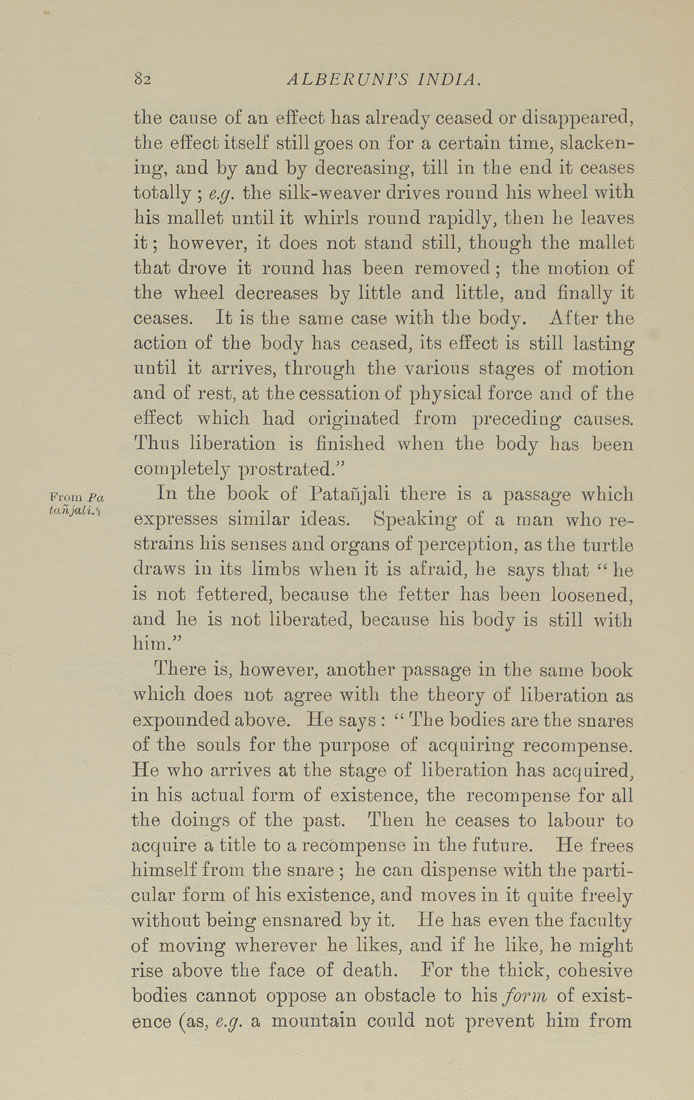Bīrūnī, Muḥammad ibn Aḥmad, Alberuni's India (v. 1)
(London : Kegan Paul, Trench, Trübner & Co., 1910.)
|
||
|
|
|
|
| Page 82 |

tanjali.'i 82 ALBERUNPS INDIA. the cause of an effect has already ceased or disappeared, the effect itself still goes on for a certain time, slacken¬ ing, and by and by decreasing, till in the end it ceases totally ; e.g. the silk-weaver drives round his wheel with his mallet until it whirls round rapidly, then he leaves it; however, it does not stand still, though the mallet that drove it round has been removed ; the motion of the wheel decreases by little and little, and finally it ceases. It is the same case with the body. After the action of the body has ceased, its effect is still lasting until it arrives, through the various stages of motion and of rest, at the cessation of physical force and of the effect which had originated from preceding causes. Thus liberation is finished when the body has been completely prostrated." From Pa In the boolc of Patanjali there is a passage which expresses similar ideas. Speaking of a man who re¬ strains his senses and organs of perception, as the turtle draws in its limbs when it is afraid, he says that " he is not fettered, because the fetter has been loosened, and he is not liberated, because his body is still with him." There is, however, another passage in the same book which does not agree with the theory of liberation as expounded above. He says : " The bodies are the snares of the souls for the purpose of acquiring recompense. He who arrives at the stage of liberation has acquired, in his actual form of existence, the recompense for all the doings of the past. Then he ceases to labour to acquire a title to a recompense in the future. He frees himself from the snare ; he can dispense with the parti¬ cular form of his existence, and moves in it quite freely without being ensnared by it. He has even the faculty of moving wherever he likes, and if he like, he might rise above the face of death. For the thick, cohesive bodies cannot oppose an obstacle to his form of exist¬ ence (as, e.g. a mountain could not prevent him from |
| Page 82 |







